
2023 Spaceflight Human Optimization & Performance Summit (SHOP-23)
The 2023 Spaceflight Human Optimization & Performance Summit (SHOP-23) was held at University of Houston-Clear Lake on April 27-29, 2023.
Recap and Highlights
SHOP-23 featured presentations led by nearly two dozen world-renowned speakers, including retired astronauts, medical research engineers, and physiologists. Hundreds of UH-Clear Lake employees, students and other space enthusiasts were in attendance.
SHOP-23 Presentations
Day 1 Welcome Remarks
Presented by: KBR
A historical overview of exercise in space: Skylab – Station
Presented by: Judith Hayes, Chief Science Officer, Human Health & Performance Directorate,
NASA
Post-flight reconditioning from R+1 - R+45
Presented by: Bruce Nieschwitz, ATC, Astronaut Strength, Conditioning, and Rehabilitation
Team
MSK, 400K Away
Presented by: Richard A. Scheuring, DO, Flight Surgeon, NASA; Danielle Anderson, DPT,
DSc, Space Medicine Operations, United States Air Force
Nutrition as fuel for astronaut performance
Presented by: Scott Smith, PhD, Nutritionist, Manager for Nutritional Biochemistry;
Sara Zwart, PhD, Nutritional Biochemist, NASA-JSC
Question and Answer
Moderated by: Liz Warren, PhD, Director of Research Development, Blue Origin
Day 2 Welcome Remarks
Presented by: University of Houston-Clear Lake
Do one more rep!
Presented by: Capt. Chris Cassidy, Astronaut (retired); Navy (retired), President
and CEO, National Medal of Honor Museum
Training for human performance: from soldiers to spaceflight
Presented by: Barry Spiering, PhD, Lead Sport Scientist, New Balance
Testing strength, explosive strength and power – From sport science to space science
Presented by: Mike Stone, PhD, Professor of Sport Science, East Tennessee State University
Blood flow restriction exercise – A novel strategy to optimize exercise countermeasures
to spaceflight and rehabilitation
Presented by: Luke Hughes, PhD, Research Fellow in Aerospace Physiology & Biomechanics,
Northumbria University
Wearable technology and remote monitoring
Presented by: Joshua Hagen, PhD, Air Force Research Laboratory
The future of human performance and spaceflight – A mission to the moon and eventually
Mars
Presented by: Jennifer Fogarty, PhD, Chief Science Officer, Translational Research
Institute for Space Health (TRISH)
Astronaut perspective on extended duration spaceflight, Presented by: Jessica Watkins PhD, Astronaut, NASA
Defining the commercial astronaut and their unique health requirements, Presented by: Michael Harrison, MD, PhD, MPH, FAsMA, Chief Medical Officer, Axiom Space
SpaceX Research priorities for exploration
Presented by: Marissa Rosenberg, PhD, Senior Medical Research Engineer, SpaceX
From flying pigs to pigs in space - Translational animal models for space biology
research
Presented by: Bianca Cerqueira, PhD, Research Scientist, Human Performance Research
Division, KBR - Lackland Air Force Base
Confinement, performance, and extended duration spaceflight
Presented by: Suzanne Bell, Lead Behavioral Health and Performance Laboratory, NASA
Integrated approach to astronaut health and physical readiness
Presented by: Tom Mashburn, MD, Chief Medical Officer, Sierra Space
Day 3 Question and Answer
Moderated by: Bria Morse, Senior Research Aerospace Physiologist, KBR Aerospace Environment
Protection Laboratory (AEPL) in San Antonio
CAPT (ret). Christopher Cassidy
A decorated veteran of the sea, air, land, and outer space, Captain Chris Cassidy is among the leaders of an exclusive and distinguished group of accomplished military astronauts who have made an impact on and beyond this world. Recognized for his leadership and achievements as a United States Navy SEAL and a NASA astronaut, CAPT. Cassidy's various military deployments and spaceflight missions provided the catalysts for an action-packed career where he made the most of every opportunity presented to him, even in challenging and high-stakes environments.
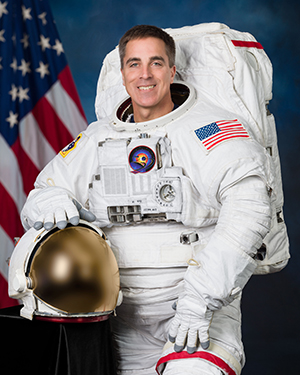
Read More About CAPT (ret). Cassidy
Exclusively represented by Leading Authorities speakers bureau, CAPT Cassidy's talks explore the habits of effective leaders and how they can motivate their teams to overcome the obstacles in front of them, foster a high-performing culture of trust, and thrive in clutch moments when everything is on the line. With a talent for storytelling and well-timed humor, he shares his inspiring journey from the U.S. Naval Academy to becoming NASA's 15th Chief Astronaut — motivating audiences to develop a never-quit mindset to accomplish their goals, and help others along the way.
CAPT Cassidy's career began as a member of the U.S. Navy SEALs team where he spent 11 of his 28 years in the Navy — making two six-month deployments to Afghanistan and a further two deployments to the Mediterranean. During his tenure with the Navy SEALS, he served in various leadership roles, including Executive Officer and Operations Officer of Special Boat Team Twenty and SEAL Delivery Vehicle (SDV) platoon commander in Norfolk, Virginia, as well as SEAL platoon commander at SEAL Team THREE in Coronado, California. Deployed to Afghanistan just two weeks after the September 11 attacks, Cassidy also served as Ground Assault Force Commander for international and U.S.-only combat missions. A master of many trades while serving his country, CAPT Cassidy also amassed several hundred hours underwater as a navigator or mission commander of a two-man flooded submersible SDV which are launched from a full-sized submarine at sea.
Making his way from Earth to the cosmos, CAPT Cassidy was selected as an astronaut candidate by NASA in 2004. Assigned his first spaceflight in 2009 as a mission specialist aboard the STS-127, he became the 500th person in history to fly into space, as well as the second-ever SEAL. In subsequent flight experiences, CAPT Cassidy was assigned to Expedition 35 in 2013 as a flight engineer and Expedition 63 as Commander of the International Space Station in 2020. While at NASA, CAPT Cassidy accumulated 378 days in space, and 54 hours, 51 minutes of spacewalk time, placing him in an elite group of four U.S. crewmembers with 10 spacewalks. He was named NASA's Chief Astronaut in 2015, a role in which he was responsible for flight assignments, mission preparation, and on-orbit support of U.S. crews, as well as organizing astronaut office support for future launch vehicles. He served in this position for two years before returning to normal flight status. In May 2021, three-time space veteran CAPT Cassidy announced his retirement from both NASA and the Navy, transitioning into his current role as CEO and president of the National Medal of Honor Museum. He also serves on the board of directors for the JFK Library Foundation and the Navy SEAL Foundation, and as an advisor for New Vista Acquisition Corp.
Among CAPT Cassidy's awards and honors are the Bronze Star with combat "V," the Presidential Unit Citation for leading a nine-day operation at the Zharwar Kili cave complex on the Afghanistan/Pakistan border, a second Bronze Star for combat leadership during Operation Enduring Freedom, and the NASA Exceptional Achievement Medal. He completed the 2014 Ironman World Championship in Kona, Hawaii and spent three weeks cycling through the Amazon rainforest in 2017. CAPT Cassidy earned his Bachelor of Science in mathematics from the U.S. Naval Academy in 1993 and his Master of Science in ocean engineering from MIT in 2000. He was awarded an honorary Ph.D. from Husson University in 2015, and a second honorary Ph.D. from the University of Maine at Augusta in 2021.
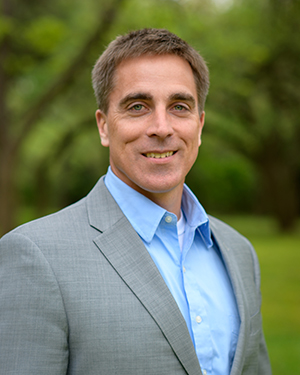
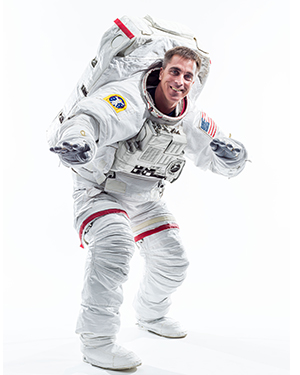
MAJ. Danielle Anderson, DPT, DSc
Major Danielle Anderson is a Physical Therapist currently assigned to Johnson Space Center, National Aeronautics and Space Administration. She delivers a spectrum of neuromusculoskeletal care preparing and supporting both U.S and International Astronauts for long duration space flight aboard the International Space Station (ISS). Additionally, she provides consultation and management recommendations to Crew and Deputy Crew Flight Surgeons working neuromusculoskeletal conditions on board the ISS. She serves as the Air Force's liaison to the Military Musculoskeletal residency, a tri-service one-year Physical Therapy residency, where she oversees admittance, regional instruction, and successful program completion of Air Force, Army and Navy Physical Therapists.
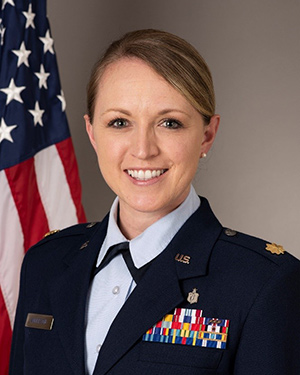
Read More About MAJ. Anderson
MAJ. Anderson received her Doctor of Physical Therapy from Regis University and direct Air Force commission in 2012. During her first assignment to Travis Air Force Base, she deployed to Kabul, Afghanistan in support of Operation Enduring Freedom. She provided musculoskeletal care for Joint Special Operations Task Force Afghanistan and NATO partners, earning her the United States Air Force Biomedical Service Corps and Military Health Systems Junior Clinician of the Year. In addition, she served as the sole physical therapist while deployed with Navy Special Warfare Unit Three in Bahrain, supporting the training and assistance to the special operations forces of the Nations of the Gulf Cooperation Council. She has instructed numerous Air Force Physical Therapy courses, including topics of medical screening, dry needling, principles of orthopedic manual physical therapy, and spine and peripheral joint management of musculoskeletal conditions and currently serves as an Assistant Professor to the Doctor of Physical Therapy Program at Army-Baylor University, Joint Based San Antonio (JBSA), Tx. Lastly, she is published in Military Medicine and the Journal of Orthopedic and Sports Physical Therapy and has presented in over ten National Physical Therapy conferences.
Prior to her current position, Major Anderson was the Orthopedic and Rehabilitation Flight Commander at 59th Surgical Operations Squadron, JBSA-Lackland, Tx., where she led 72 members among six elements across two sites, providing 77k specialty visits and over 400 surgical procedures annually for 250,000 beneficiaries. Additionally, she was the Program Director for the Air Force's first Orthopedic Physical Therapy Residency and oversaw daily operations and didactic instruction for four directly commissioned Air Force Physical Therapists. Pervious experiences include Deputy Group Senior Biomedical Service Officer, 59th Medical Operations Group, JBSA-Lackland, Tx., Educational Element Chief, 60th Medical Operations Squadron, Travis AFB, Ca., and Staff Physical Therapist, 60th Medical Operations Squadron, Travis AFB, Ca.
Suzanne T. Bell, PhD
Dr. Suzanne Bell is the Lead of the Behavioral Health and Performance Laboratory at NASA, and a tenured professor of psychology at DePaul University. She serves as NASA's technical expert and leader responsible for the oversight of behavioral health and performance disciplines and risks, research plans, development of potential countermeasures, and deliverables to multiple NASA Programs (e.g., Artemis, Orion). Her primary research areas are predictors of high performance individuals, personnel selection and training, and maximizing team performance especially in extreme environments. She is particularly noted for her expertise in team composition.
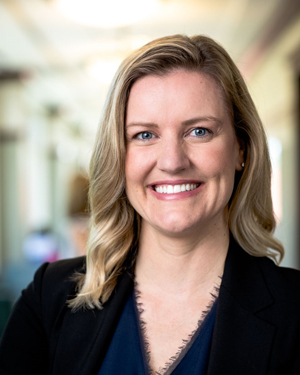
Read More About Dr. Bell
Dr. Bell's research appears in top peer-reviewed journals including American Psychologist, Journal of Applied Psychology, and Acta Astronautica. Her research and expertise have been covered in Harvard Business Review, Scientific American, and Discovery among others. She is a Fellow of the Association for Psychological Science, and of the Society for Industrial and Organizational Psychology. Dr. Bell has her Ph.D. in Industrial and Organizational Psychology from Texas A&M University.
Bianca Cerqueira, PhD 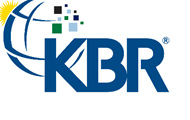
Dr. Bianca Cerqueira is a Human Performance Research Scientist located at Lackland AFB within KBR's Human Performance Research Division. Her research supports the Air Force Research Lab, USAF 59th Medical Wing, USAF School of Aerospace Medicine, Defense Health Agency, and NASA with a focus on data analytics, machine learning, biomedical research, mental health resilience, and human performance optimization. She holds a B.S. in Neurobiology and Physiology from the University of Maryland, a Ph.D. in Biomedical Engineering from the University of Texas Health Science Center at San Antonio, and Certificate in Translational Science from the University of Texas Health Science Center at San Antonio.
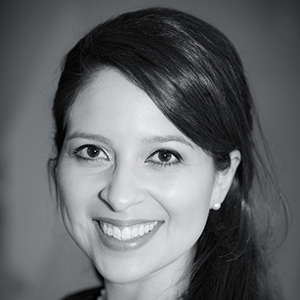
Read More About Dr. Cerqueira
Dr. Cerqueira's current research focuses on improving resilience among DoD Service Members which falls under five broad topic areas: 1) mitigating effects of extreme conditions present in occupational exposure – extreme altitude, hypoxia, hyperoxia, hypobaria, hypergravity, traumatic brain injuries, unconventional brain injuries, sleep loss; 2) mitigating effects of infectious disease such as COVID or other novel infectious diseases; 3) enhancing training - identifying key performance indicators related to pilot training; 4) data analytics - machine learning for drug repurposing for cancer treatment and to mitigate effects of high altitude exposure; and 5) neuroscience research to improve mental health outcomes and predict service members with highest risk of chronic traumatic encephalopathy (CTE).
Jennifer Fogarty, PhD
Dr. Jennifer Fogarty is the Chief Scientific Officer for the Translational Research Institute for Space Health (TRISH) at Baylor College of Medicine and the Director of Applied Health and Performance at Sophic Synergistics LLC. With more than twenty years of experience in medical physiology and human health and performance in extreme environments, her mission is to increase access to high-quality healthcare in space and on Earth, by empowering astronauts, patients, and medical providers with evidenced-based precision medicine and technology.
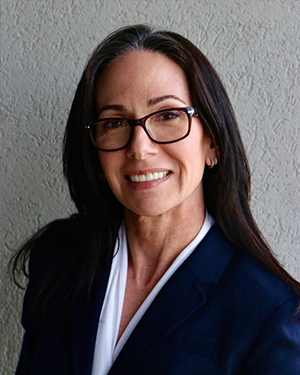
Read More About Dr. Fogarty
As Chief Scientist of TRISH, Dr. Fogarty leads an innovative, high-risk research and development portfolio to address space exploration's most challenging human health and performance risks. In her role at Sophic Synergistics, a women-owned and led human-centered design firm, Dr. Fogarty guides a division focused on developing and expanding medical technologies for use in remote medicine, telemedicine, and home healthcare. As a former NASA Human Research Program Chief Scientist, Jennifer prioritized communication and collaboration between industry, academia, government, commercial spaceflight programs, and international partners. She continues to value and seek partnerships to discover and assess fundamental and mechanistic discoveries that lead to innovative prevention and treatments to sustain health and performance.
Dr. Fogarty received her Ph.D. in Medical Sciences from Texas A&M University College of Medicine. Other appointments include Assistant Professor in both Baylor College of Medicine's Center for Space Medicine and Department of Medicine; Editor of the Fundamentals of Aerospace Medicine, 4th and 5th editions; and Associate Editor for the journal npj Microgravity.
Joshua Hagen, PhD
Dr. Joshua Hagen has worked in the field of biosensors since his graduate research began 21 years ago, and additionally in the field of Human Performance research for the last 11 years at the Air Force Research Laboratory for the US Government and in academia at West Virginia University and Ohio State University. This research involves the optimization of Human Performance in athletes, military, and clinical populations through the measurement of physiology, data analysis to provide a deep understanding of the data, and finally research in augmentation therapies to maximize performance.
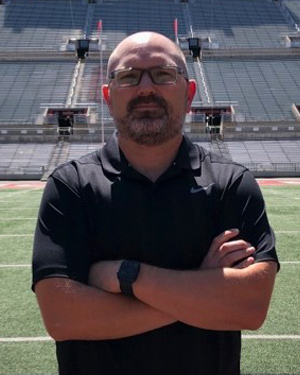
Read More About Dr. Hagen
Dr. Hagen is the Faculty Director of the Human Performance Collaborative under the Office of Research at Ohio State University. The HPC has a mission to improve the lives of Athletes, Military, and Patient populations through research and translational science. Within the Human Performance research area, Dr. Hagen leads 2 core research components: Sports and Tactical Performance Science, and Recovery Science. This includes both in-lab controlled and field-based applied research studies consisting of physiological measurements from heart rate, heart rate variability, sleep, blood based biomarkers (acute, chronic, and epigenetic markers) to name a few. Performance tests such as VO2 max, aerobic and anaerobic power testing, biomechanics screening, cognitive testing etc. will be conducted both in the lab and in the field. Through detailed study design, reliable data collection, and in-depth and novel data analytics, all led by HPC researchers and graduate students, we can achieve our goals of maximizing the health, wellness, and performance of athletes, military, and clinical patient populations.
A primary motivation behind Dr. Hagen's research, and a driving factor behind the HPC is to help the population through the advancement and transition of the science behind human performance, health, and wellness. We have the distinct privilege of working directly with military personnel, both active duty and veterans, athletes, both collegiate and professional, and the general population. It is our mission and duty to help all of the groups stay healthy and perform at a high level.
Michael F. Harrison, MD, PhD, MPH, FAsMA, FAAEM
Dr. Michael Harrison is the Chief Medical Officer for Axiom Space in Houston TX and a Senior Associate Consultant for the Departments of Emergency Medicine, Critical Care Medicine, and Aerospace Medicine, Mayo Clinic, Jacksonville FL.
Dr. Harrison completed his undergraduate and graduate studies in exercise physiology at the University of New Brunswick, Fredericton NB. He completed a doctorate in exercise physiology and advanced statistical analyses at the University of Regina, Regina SK, prior to medical school. While attending Saba University School of Medicine, Saba NA, he obtained a masters degree in hyperbaric medicine concurrent to his MD. He served as a chief resident at Henry Ford Hospital in Detroit MI while completing a combined Emergency Medicine / Internal Medicine / Critical Care Medicine training program.
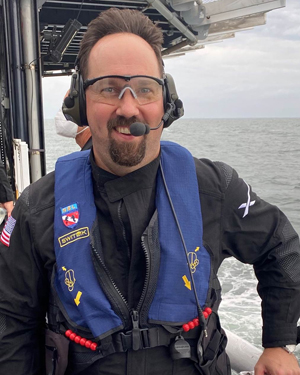
Read More About Dr. Harrison
Judith Hayes
SHOP-23 Presentation: A historical overview of exercise in space: Skylab – Station
Judith (Judy) Hayes is the Chief of the NASA Biomedical Research and Environmental Sciences Division within the Johnson Space Center (JSC) Human Health and Performance Directorate. Her career spans over 3 decades as a scientist and manager dedicated to ensuring astronaut health and performance during human space exploration. She started the NASA Exercise Physiology Laboratory in 1987 and was the Principal Investigator on two space flight experiments studying the effects of microgravity on skeletal muscle performance in astronauts. She has managed space physiology, behavioral, and environmental health laboratories, and space medicine projects supporting multiple human space programs. She led the integration of medical operations and biomedical research requirements for the seven astronaut missions in Russian Mir-Shuttle program. Correspondingly, she established physiology and clinical laboratories at the Gagarin Cosmonaut Training Center in Star City, Russia to support pre- and postflight medical and research testing for Mir and ISS.
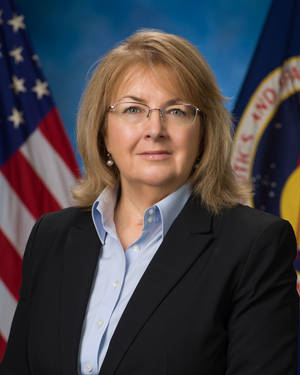
Read More About Judith Hayes
Judy established collaborations and contracts with the NASA international partners to provide ISS medical and experiment support. She continues to work closely with NASA's international partners on various international contracts to provide ISS medical and experiment support. For the initial decade of ISS, she co-led with her Russian counterpart, the Multilateral Medical Operations Panel (MMOP) Countermeasures Subgroup. Similarly, she was a founding member of the International Countermeasures Working Group (ICWG), for developing global standards on spaceflight exercise, rehabilitation, and research.
Currently, Judy leads an interdisciplinary biomedical team involved in research, operations, and project management components of all NASA programs involved in human space exploration: ISS, Artemis, Gateway, Commercial Crew, Orion, EVA, Human Research Program, Human Lander Systems, and Advanced Exploration Systems. This involves activities related to space flight and analog research, clinical testing of astronauts, Human System Risks assessment, development of astronaut and vehicle health standards, countermeasures hardware and prescription validation, astronaut training, monitoring of space vehicle environmental health, and project management.
Judy is the founding Director of the NASA Space Life Sciences Summer Institute, where she has hosted 1200+ undergraduate, graduate, and medical student interns. This educational institute engages college interns and fellows in multidisciplinary challenges related to space physiology, psychology, environmental health, and medicine related to human space exploration.
Judy has published journal articles and book chapters related to space flight exercise. Judy received Bachelor of Science and Master of Science degrees in Exercise Physiology from West Virginia University, followed by a Master of Public Health degree in Occupational Health from The University of Texas Health Sciences Center. She completed an international health care appointment at The Royal College of Surgeons of England. Judy is currently a doctoral candidate in Leadership Studies at Our Lady of the Lake University in San Antonio, TX.
Judy has been recognized with various honors, including the Silver Snoopy awarded by the NASA astronauts, as well as West Virginia University Hall of Fame, Outstanding Alumnus, and Academy of Distinguished Alumni. She holds memberships with the American Institute for Aeronautics and Astronautics (AIAA), Women in Aerospace, and Sigma Xi, the national research society. Judy is a Fellow in the Aerospace Medical Association (AsMA) and a Past-President of the AsMA Space Medicine Association. She currently volunteers with AstraFemina, an organization that inspires girls to engage in STEM education.
Luke Hughes, PhD
Dr. Luke Hughes is an Assistant Professor in Aerospace Physiology & Rehabilitation where he works in the Aerospace Medicine and Rehabilitation Laboratory at Northumbria University. His primary area of research is optimisation of human performance and rehabilitation in clinical, elite sport and high-performance populations including astronauts. Dr. Hughes is currently working on two research campaigns through the European Space Agency, funded by the UK Space Agency, to investigate lumbopelvic deconditioning & reconditioning during spaceflight missions, working with astronauts before and after ISS missions and in individuals undergoing long duration bedrest on Earth. His other ongoing spaceflight-related projects including investigation of novel exercise countermeasures to spaceflight, specifically how blood flow restriction exercise could be used to optimize exercise countermeasures to spaceflight within the operational and technological constraints of long duration spaceflight and missions beyond low earth orbit.
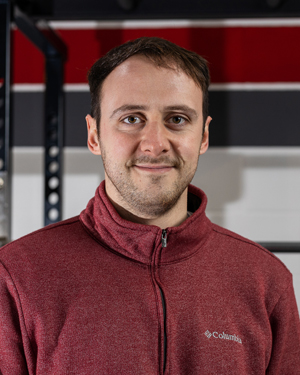
COL (ret). R. Shane Kimbrough
Shane Kimbrough was selected by NASA in 2004. He completed his first spaceflight in 2008 on STS-126, where he spent almost 16 days on the mission to expand the crew living quarters to accommodate a six-member crew on the International Space Station (ISS). He performed two spacewalks during this mission. On his second spaceflight, Kimbrough launched to the ISS on the Russian Soyuz MS-02 spacecraft from the Baikonur Cosmodrome in Kazakhstan. This mission lasted 173 days as part of Expeditions 49 and 50, where he performed four spacewalks and numerous science and maintenance activities. He most recently served as commander of the NASA/SpaceX Crew-2 Dragon spacecraft, which launched from the Kennedy Space Center in Florida. Once on the ISS, Kimbrough served as Flight Engineer of Expedition 65/66. He performed three spacewalks during the 199-day mission. Kimbrough now has a total of 388 days in space.
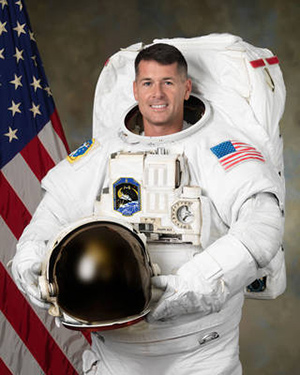
Read More About Col. Kimbrough
Born June 4, 1967, in Killeen, Texas. Married to the former Robbie Lynn Nickels of Marietta, Georgia. They have three children. He enjoys baseball, golf, weightlifting and running.
Graduated from The Lovett School, Atlanta, Georgia, in 1985; received a Bachelor of Science degree in Aerospace Engineering from the United States Military Academy, West Point, New York, in 1989 and a Master of Science degree in Operations Research from the Georgia Institute of Technology in 1998.
Kimbrough graduated from West Point in May 1989 and was commissioned as a Second Lieutenant in the U.S. Army. He entered the U.S. Army Aviation School in 1989 and was designated an Army aviator in 1990. In late 1990, he was assigned to the 24th Infantry Division (Mechanized), Fort Stewart, Georgia, and was deployed to Southwest Asia, where he served in Operation Desert Storm. He served in the 24th Infantry Division as an attack helicopter platoon leader, aviation liaison officer and attack helicopter battalion operations officer. In 1994, he was assigned to the 229th Aviation Regiment (Attack) (Airborne) at Fort Bragg, North Carolina, where he commanded an Apache helicopter company as well as the Regimental headquarters company. After completing a Masters of Science degree at the Georgia Institute of Technology in 1998, he was assigned as an assistant professor in the Department of Mathematical Sciences at the United States Military Academy. Other military schools include the Army Parachutist Course, Army Jumpmaster Course, German Airborne Course, the Combined Arms Services Staff School and the Command and General Staff College.
Kimbrough joined the NASA team at the Johnson Space Center (JSC) in September 2000. He was assigned to NASA's Aircraft Operations Division at Ellington Field in Houston, where he served as a Flight Simulation Engineer (FSE) on the Shuttle Training Aircraft (STA).
Kimbrough was selected as an astronaut candidate by NASA in May 2004. In February 2006, he completed Astronaut Candidate Training that included scientific and technical briefings, intensive instruction in shuttle and International Space Station systems, physiological training, T-38 flight training and water and wilderness survival training. Completion of this initial training qualified him for various technical assignments within the Astronaut Office and future flight assignment as a Mission Specialist. Kimbrough completed his first spaceflight in 2008, logging a total of 15 days, 20 hours, 29 minutes and 37 seconds in space and 12 hours and 52 minutes in two spacewalks. Kimbrough served as the Chief of the Vehicle Integration Test Office (VITO) from June 2013 to June 2014 in the Flight Crew Operations Directorate as well as serving as the Robotics Branch Chief for the Astronaut Office. Kimbrough served as the Chief of the Vehicle Integration Test Office (VITO) in NASA's Flight Operations Directorate (FOD) from 2018-2020.
STS-126 Endeavour (November 14 to November 30, 2008) launched at night from the Kennedy Space Center, Florida, and returned to Edwards Air Force Base, California. It was NASA's 4th shuttle flight in 2008 and the 27th shuttle/station assembly mission. Highlights of the almost 16-day mission included expanding the living quarters of the space station to eventually house six-member crews by delivering a new bathroom, kitchen, two bedrooms, an exercise machine and a water recycling system. During the mission, Kimbrough performed two spacewalks, logging a total of 12 hours and 52 minutes. STS-126 also delivered a new resident to the station, replacing Greg Chamitoff, Expedition 17/18, with Sandy Magnus, Expedition 18. STS-126 returned to Earth after completing 250 orbits in over 6 million miles.
Kimbrough launched on October 19, 2016, as part of Expedition 49/50. He became the Commander of the International Space Station a week after he reached the ISS and remained so until he departed almost six months later. During Expedition 50, Kimbrough performed four spacewalks, logging over 26 hours. This increased his total to six spacewalks and over 39 hours outside the orbiting laboratory. Expedition 50 also experienced the arrival of five visiting vehicle spacecraft, which delivered thousands of pounds of experiments, supplies, and hardware to the ISS. Kimbrough and his two Russian cosmonaut crewmates Sergey Ryzhikov and Andrey Borisenko returned to Earth on the steppes of Kazakhstan on April 10th, 2017 to conclude their 173-day mission. The mission completed 2,770 orbits of the Earth covering more than 80 million miles.
Kimbrough's third flight launched on April 23, 2021. He served as the Commander of the NASA/SpaceX Crew-2 mission to the ISS in the Crew Dragon spacecraft. During his time on ISS, Kimbrough served as a Flight Engineer of Expedition 65/66. He contributed to numerous activities while aboard the station including a host of scientific investigations, technology demonstrations, and maintenance activities. Kimbrough performed three spacewalks on this flight bringing his total to nine and over 59 hours of time outside of the ISS. This flight lasted 199 days, completed 3,190 orbits of the Earth, and covered over 84 million miles. Kimbrough now has logged 388 days in space, and he became the fourth person to fly on three different spacecraft.
Captain of the West Point baseball team; First Team All-Conference Pitcher; Distinguished Graduate from the U.S. Army flight school; Legion of Merit; Defense Meritorious Service Medal; NASA Space Flight Medal; Army Meritorious Service Medal; Army Commendation Medal; Army Achievement Medal; National Defense Service Medal; Southwest Asia Service Medal; Kuwaiti Liberation Medal; Saudi Arabian Kuwaiti Liberation Medal; Valorous Unit Award; Military Outstanding Volunteer Service Medal; Master Astronaut Badge; Master Aviator Badge; Master Space Badge; NASA Outstanding Leadership Medal; inducted into the Georgia Military Hall of Fame in 2021.
Army Aviation Association of America; United States Military Academy Association of Graduates; Army Athletic Association; West Point Society of Greater Houston; Association of the United States Army.
Thomas H. Marshburn, MD
Dr. Thomas H. Marshburn was selected as an Astronaut by NASA in 2004. He holds a Bachelor of Science in Physics from Davidson College, North Carolina; a Masters in Engineering Physics from the University of Virginia; a Doctorate of Medicine from Wake Forest University; and a Masters in Medical Science from the University of Texas Medical Branch. The North Carolina native is a veteran of three spaceflights, STS-127, Expedition 34/35, and Expedition 66/67 as part of Crew-3. Prior to becoming an astronaut, Dr. Marshburn served as a Flight Surgeon, assigned to Space Shuttle Medical Operations and to the joint U.S./Russian Space Program and eventually became the Medical Operations Lead for the International Space Station. He served as pilot of the NASA SpaceX Crew-3 mission to the International Space Station, which launched on November 10, 2021. Marshburn served as a flight engineer on Expedition 66 and commander of Expedition 67 during that mission. NASA's SpaceX Crew-3 astronauts safely splashed down Friday, May 6, 2022, aboard the Dragon Endurance spacecraft completing the agency's third long-duration commercial crew mission to the International Space Station. The international crew of four spent 177 days in orbit.
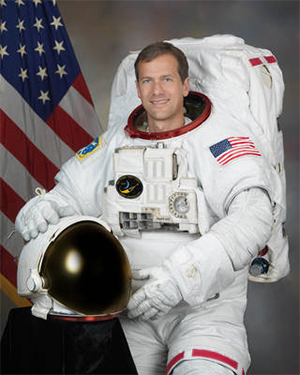
Bria Morse, MS 
Bria Morse is a physiology research professional experienced in laboratory research, biosensor integration, program management, translational research and application, and education. She applies her background in exercise physiology and nutrition to investigate concepts in human performance and medical care in aviation and space environments. She currently works at the KBR Aerospace Environment Protection Laboratory (AEPL) in San Antonio as a Senior Research Aerospace Physiologist for the Space and Mission Solutions Group. In this role, she supports DoD and DoD-affiliate research initiatives by providing physiological expertise for RDT&E and assisting in subject and protocol management for centrifuge and hypobaric chamber operations.
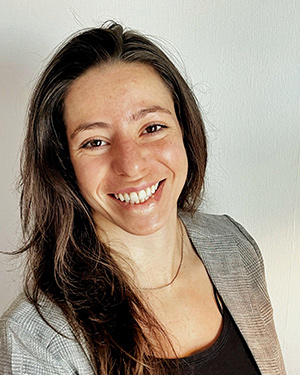
Bruce Nieschwitz, ATC 
Bruce Nieschwitz is an Astronaut Strength, Conditioning, and Rehabilitation Specialist (ASCR) for KBR at NASA-JSC. Nieschwitz's primary role is to provide comprehensive strength and conditioning, physical medicine, and rehabilitation services for pre-flight, in-flight, and post-flight to active astronauts. Since Nieschwitz began at KBR in 2006, he has served as the primary ASCR assigned to numerous shuttle and ISS missions. He also provides perspective, serving as a subject matter expert for designing and using exercise hardware for spaceflight. He is a board-certified and Licensed Athletic Trainer earning his B.S. from Kent State University and was a Graduate Assistant Athletic Trainer at Mankato State University. Prior to joining the ASCR group, Nieschwitz was the head of Athletic Training at Alvin Independent School District in Alvin, Texas.
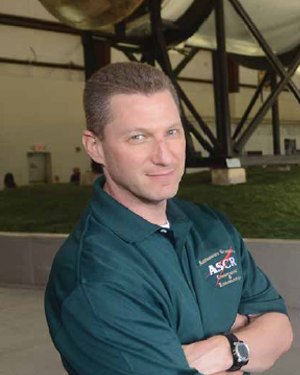
Marissa Rosenberg, PhD
Marissa Rosenberg is a Senior Medical Research Engineer leading the research program at SpaceX. She has a Ph.D. in Astrophysics from Leiden University in the Netherlands and a M.Sc. in Space Physiology & Health from King's College London in the UK. Dr. Rosenberg spent six years at NASA Johnson Space Center studying astronauts balance and coordination immediately after they returned from the International Space Station and tracked their recovery. She used that data to quantify crew health and performance, investigate countermeasures, and assess risk for future human missions to the moon and Mars.
Currently, Dr. Rosenberg is leading the research program at SpaceX, focused on expanding access to space travel and achieving multi-planetary presence for humanity.
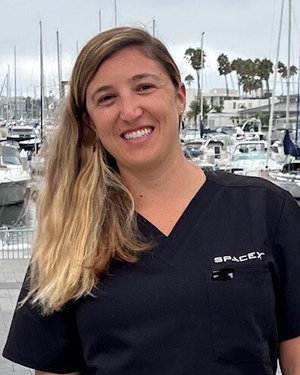
Rick Scheuring, DO, MS, RMSK, FAsMA, FAAFP, COL, MC, SFS, USAR
Dr. Rick Scheuring is a NASA flight surgeon at the Johnson Space Center in Houston, TX, a position he has held since 2007. He is currently the lead physician for the International Space Station Program Medical (ISS) team, the Team Lead for Astronaut Musculoskeletal Medicine and Rehabilitation; has served as the lead crew surgeon of ISS Expedition 52/53, ISS Exp 60/61/62, and most recently the deputy crew surgeon for the US record setting 1-year mission of Exp 65/66. He will be the lead crew surgeon for ISS 71S yearlong mission launching in March 2024. Rick supports the NASA EVA suited injury team and new planetary space suit development with an emphasis on identifying injury mechanisms and prevention. He serves as the MEDEVAC surgeon for returning long-duration space flight astronauts on the NASA G5 gulfstream jet and has supported 9 space shuttle launch/landing operations as a DoD "Airdoc" out of Patrick Airforce Base. Rick also serves as a Colonel in the US Army Reserves. He is stationed at the Uniformed Services University of the Health Sciences at Bethesda, MD, where he is an associate professor in military and emergency medicine. He has had the privilege to support combat missions as battalion flight surgeon in Iraq and Kosovo, with over 250 hrs of flight time as crew surgeon.
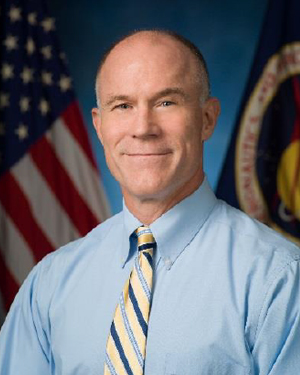
Read More About Dr. Scheuring
Dr. Scheuring completed his undergraduate degree at Eastern Illinois University in 1986, medical school at the Chicago College of Osteopathic Medicine in 1993, Family Practice residency at Presbyterian/St Luke's Medical Center in Denver, CO in 1996, the Aerospace Medicine Residency and Master of Science graduate program at Wright State University in Dayton, OH in 2005, and most recently an orthopedic ultrasound fellowship at Detroit Medical Center in 2013. He is a Fellow of the Aerospace Medical Association (AsMA) and the American Academy of Family Physicians (AAFP).
His current research interests include investigations into spine changes that occur during microgravity exposures. Dr. Scheuring serves as the primary investigator on NASA technology demonstrations (TechDemos) in space utilizing ultrasound technology to image the spinal musculature and joints. He is PI for ongoing research into the mechanisms for shoulder injuries incurred during Neutral Buoyancy Lab (NBL) Extravehicular Mobility Unit (EMU) training. He has published over 40 papers and 5 book chapters on musculoskeletal conditions in US astronauts, Apollo medical operations, alternobarics, military medical operations in extreme environments, and operational space medicine.
He received the NASA US astronaut corps highest civilian award, the "Silver Snoopy," by ISS Commander Randy “Komrade” Bresnik in 2019 for extraordinary contribution to the US space program and devotion to crew health and safety. The Aerospace Medical Association recognized him with the Joseph P. Kerwin, MD award in 2017 his work on identifying the mechanisms of shoulder injuries in US astronauts training in the NBL EMU and designing successful mitigation strategies. NASA recognized Dr. Scheuring in 2021 with the NASA Exceptional Achievement Award for exceptional achievement as the ISS Expedition 60/61/62 Prime Crew Surgeon as US Army Astronaut and USUHS graduate COL Drew Morgan's flight surgeon. In 2020 NASA awarded Dr. Scheuring the NASA Silver Achievement award for outstanding contribution to the Exploration Exercise Device Development, an engineering effort to design new exercise equipment for astronauts going to the Moon or Mars. He provided the medical input for optimizing crew readiness and performance optimization for future planetary missions.
Academically, Dr. Scheuring oversees the NASA-Houston Methodist Hospital Dept of Orthopedic Surgery Sports Medicine Fellowship at Johnson Space Center. This collaboration was created by Dr. Scheuring in 2012 at NASA to bring world-class orthopedic care to the US astronaut corps at NASA-JSC. Since its' inception, he has trained 26 orthopedic surgeon sports medicine specialists and provided instruction in orthopedic ultrasound. He is lead instructor for the NASA flight surgeons in the ISS-Russian Soyuz medical operations, oversees the operational space medicine certification process and provides mentoring for new flight surgeons. At USUHS, he has helped co-develop the Operational Space Medicine elective in MEM, along with the Dept of Pediatrics, for 3rd year medical students interested in space medicine. He provides capstone project guidance and brings subject matter experts in the field from the DoD and civilian field to provide cutting edge instruction in operational space medicine. He has served as an instructor coordinator at Operation Bushmaster since 2015, Advanced Combat Medical Experience since 2017, and mentored USUHS 3rd and 4th year medical students during the NASA Aerospace Medicine clerkship at Johnson Space Center since 2010. He also serves as a mentor and guest speaker for the Aerospace Medical Student-Resident Organization (AMSRO) through the Aerospace Medical Association.
As a US military service member, COL Scheuring earned the Defense Meritorious Service Medal in 2021 for outstanding meritorious achievement as Associate Professor of Preventive Medicine, USUHS, for support of an active-duty astronaut’s long duration spaceflight to the ISS and the successful recovery of the crew in Russia and Kazakhstan. He has earned the Joint Service Commendation Medal in 2016 in recognition of meritorious service in training and mentoring hundreds of DoD physicians during the Combat Casualty Care Course at Ft. Sam Houston. Other notable achievements include the senior space badge, senior flight surgeon badge, Antarctic service medal, US army commendation and achievement awards.
He serves as the resident astronomer for Viking Cruise lines, where he provides lectures on astronomy, space medicine, live sky dome shows on the ship’s planetarium, solar telescope viewing and star gazing.
Scott M. Smith, PhD
Dr. Scott Smith leads the Nutritional Biochemistry Laboratory at NASA Johnson Space Center. This group is charged with keeping crews healthy with respect to nutrition, including using nutrition to optimize astronaut health and safety. This work includes ground-based and spaceflight research to understand how nutrition can mitigate the risks of spaceflight.
Smith has ongoing research projects on the International Space Station. His past projects have been flown on the space station, space shuttle, and the Russian space station Mir. Smith has also led several ground-based research projects to better understand astronaut health in space, including studies of vitamin D in crews in Antarctica, studies of crews living on the bottom of the ocean, and studies of test subjects spending weeks to months in bed.
Smith is a member of the American Society for Nutrition, the American Physiological Society, and the International Academy of Astronautics. He holds a B.S. in Biology and a Ph.D. in Nutrition, both from the Pennsylvania State University.
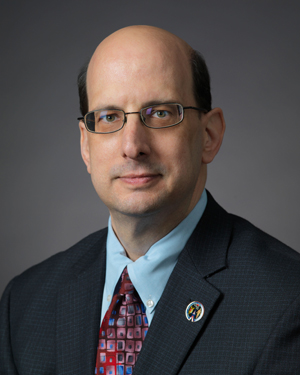
Barry A. Spiering, PhD
Dr. Barry A. Spiering is the Lead Physiologist in the New Balance Sports Research Lab. Prior to joining New Balance, Dr. Spiering held positions at the U.S. Army Research Institute of Environmental Medicine (USARIEM), Nike, California State University – Fullerton, and NASA – Johnson Space Center. Additional professional experiences include serving as a Sports Physiologist at the U.S. Olympic Training Center, managing the Human Performance Laboratory at Marywood University, and interning with the New Orleans Saints strength & conditioning staff. Dr. Spiering earned his Ph.D. at the University of Connecticut, under the guidance of Professor William J. Kraemer, Ph.D. Ultimately, these experiences have led to numerous peer-reviewed scientific publications, as well as presentations at regional, national, and international meetings.
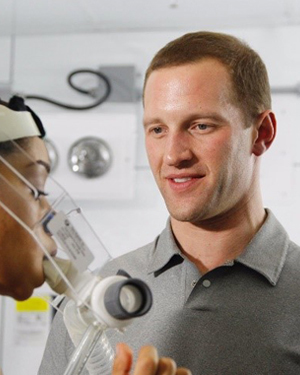
Michael H. Stone, PhD
Dr. Michael H. Stone is currently the Exercise and Sports Science Laboratory Director and the Graduate Coordinator in the Department of Sport, Exercise, Recreation and Kinesiology at East Tennessee State University (ETSU). He is the Research coordinator for the Center of Excellence for Sport Science and Coach Education at ETSU. He was a USA national level weightlifter during the 1970's and 80's. From 1999 through 2001 he was Chair of Sport at Edinburgh University, Edinburgh, Scotland. Prior to joining ETSU he was the Head of Sports Physiology (2001-2005) for the USOC. Dr. Stone's service and research interests are primarily concerned with physiological and performance adaptations to strength/power training. He has 280+ publications in reviewed journals, co-authored three textbooks dealing with strength and conditioning, has contributed chapters to several texts in the areas of bioenergetics, nutrition, and strength/power training.
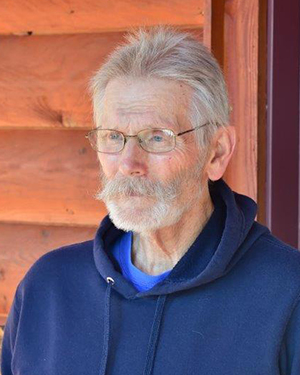
Read More About Dr. Stone
Liz Warren, PhD
Liz Warren, Ph.D. is a physiologist with expertise in the effects of spaceflight on humans. She has been involved in spaceflight research for over 25 years and is currently the Director of Research Development for Orbital Reef at Blue Origin.
Dr. Warren was born and raised in the San Francisco Bay Area, and attended the University of California at Davis for both her undergraduate and doctoral degrees in physiology. For her doctoral work, she investigated the effects of gravity as a continuum on energy balance in rats. She completed post-doctoral work in cancer biology at the San Francisco Veterans Affairs Laboratory of Cell Growth, and in the Neuroscience Laboratory at NASA's Johnson Space Center. She has performed a variety of roles at NASA, including serving as Deputy Project Scientist for the NASA Bed Rest and Artificial Gravity Projects. Dr. Warren also spent several years as an Operations Lead in Mission Control for the ISS Medical Project. Dr. Warren most recently managed research on the ISS National Laboratory as a Senior Program Director at the Center for the Advancement of Science in Space.
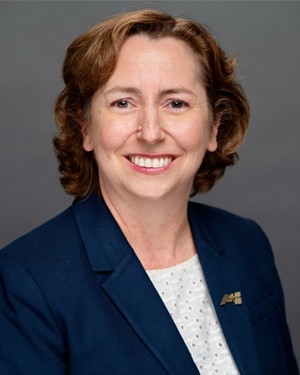
Jessica Watkins, PhD
Jessica Watkins was selected by NASA to join the 2017 Astronaut Candidate Class. Watkins reported for duty in August 2017 and completed two years of training as an astronaut candidate. The Colorado native earned a Bachelor of Science in Geological and Environmental Sciences from Stanford University, and a Doctorate in Geology from the University of California, Los Angeles (UCLA). Dr. Watkins conducted her graduate research on the emplacement mechanisms of large landslides on Mars and Earth. She has worked at NASA's Ames Research Center and NASA's Jet Propulsion Laboratory, and was a science team collaborator for NASA's Mars Science Laboratory rover, Curiosity. Watkins served as a mission specialist on NASA's SpaceX Crew-4 mission to the International Space Station, which concluded on Oct. 14, 2022.
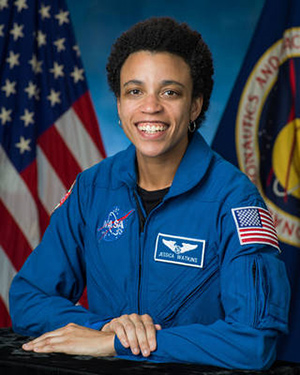
Read More About Dr. Watkins
Watkins was born in Gaithersburg, Maryland, but considers Lafayette, Colorado her hometown. Her parents, Michael and Carolyn Watkins, still live there. She enjoys rugby, basketball, soccer, skiing, coaching, movies, and writing.
Graduated from Fairview High School in Boulder, Colorado. Earned a Bachelor of Science in Geological and Environmental Sciences from Stanford University in Stanford, California. Earned a Doctorate in Geology from the University of California, Los Angeles.
As a graduate research fellow at UCLA, Watkins studied Mars surface processes, focusing her Ph.D. research on the emplacement mechanisms of large landslides on Mars and Earth through orbital image and spectral data analysis, geologic mapping, and field work. While at UCLA, she was also a teaching assistant for various courses in earth and planetary science. At the time of her selection in June 2017, Watkins was a postdoctoral fellow in the Division of Geological and Planetary Sciences at the California Institute of Technology, where she collaborated as a member of the Science Team for the Mars Science Laboratory rover, Curiosity. Her work there included participation in daily planning of rover activities, testing of Mars rock physical properties using rover drill parameters, and multi-scale investigation of the geologic history of Gale crater, Mars. While at Caltech, Dr. Watkins also served as a volunteer assistant coach for the Caltech Women's Basketball team.
During undergraduate internships at NASA's Ames Research Center, Watkins conducted research on Mars soil simulant supporting the Phoenix Mars Lander mission. As a graduate student, Watkins participated in several internships at NASA's Jet Propulsion Laboratory, including analysis of near-earth asteroids discovered by the NEOWISE mission, tactical and strategic planning for the Curiosity mission, and system design testing for the Mars 2020 and Mars Sample Return missions. In addition, she served as chief geologist for a NASA analog mission at the Mars Desert Research Station in 2009 and as a science operations team member for a NASA Desert Research and Technology Studies analog mission in 2011. Dr. Watkins also served as an aquanaut crew member in the Aquarius underwater habitat for the NASA Extreme Environment Mission Operations 23 mission in 2019.
Watkins reported for duty in August 2017 and completed two years of training as an astronaut candidate. Her astronaut candidate training included scientific and technical briefings, intensive instruction in International Space Station systems, spacewalks, robotics, physiological training, T-38 flight training, water and wilderness survival training, geology training, and expeditionary skills training.
Watkins completed her first spaceflight as a mission specialist on NASA's SpaceX Crew-4 mission, having logged a total of 170 days in space over her two increments, Expedition 67 and 68.
Stanford Earth Early- to Mid- Career Alumni Award (2018); Caltech Division of Geological and Planetary Sciences Chair's Postdoctoral Fellowship (2015); California Alliance for Graduate Education and the Professoriate (AGEP) Postdoctoral Fellowship (2015); NASA Group Achievement Award, Mars Science Laboratory Prime Mission Science and Operations Team (2015); UCLA Department of Earth and Space Sciences Harold and Mayla Sullwold Scholarship for Academic Excellence and Outstanding Original Research (2012); National Science Foundation Graduate Research Fellowship in Geosciences (2012); UCLA Chancellor's Prize (2010); California Space Grant Consortium Fellowship (2010); Division I College Rugby National Champion, Stanford Women's Rugby (2008); USA Rugby Collegiate All-American (2008-2010); Women’s Sevens Rugby World Cup Semi-finalist, USA Eagles (2009).
Sara R. Zwart, PhD
Dr. Sara Zwart is the Deputy Manager for Nutritional Biochemistry at the NASA Johnson Space Center, a lab she joined in 2003. This group is charged with optimizing nutrition to improve astronaut health and safety on extended-duration space missions. To that end, operational activities include evaluation of crew nutritional status before, during, and after flight, as well as conducting research to better understand the role of nutrition in human health during exposure to microgravity. Dr. Zwart has researched effects of spaceflight on bone and muscle loss, iron metabolism, and ocular changes in astronauts. She has also led research efforts to understand the role of nutrition in ground-based analog studies – used to simulate aspects of space travel – including rotating cell culture, long-duration bed rest, undersea missions, and Antarctic winters.
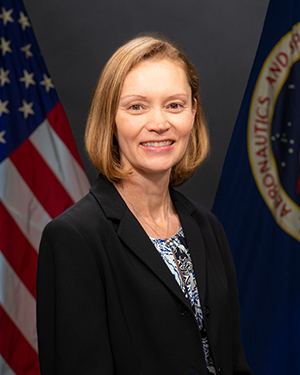
Read More About Dr. Zwart
Notable findings from Dr. Zwart's research include documentation that diet and exercise can mitigate bone density loss in astronauts, and evidence of a genetic predisposition for some astronauts to develop eye and vision changes during International Space Station missions.
Dr. Zwart received a BS in Biological Sciences from the University of Notre Dame, and a PhD in Nutritional Sciences from the University of Florida. She, her husband, and four children live in the Clear Lake area.
SHOP-23 Premier Sponsor

SHOP-23 Co-Sponsors
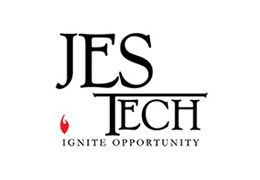
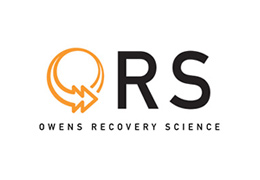

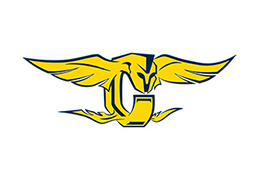

SHOP-23 Conference Organizing Committee
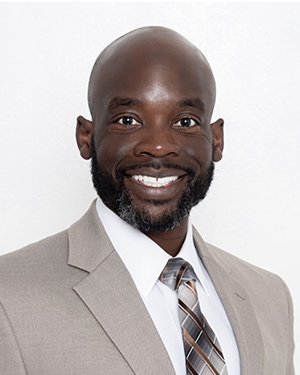
Corey Twine, MS, CSCS 
Co-Director, SHOP-23
Astronaut Strength, Conditioning and Rehabilitation (ASCR) Specialist at NASA Johnson Space Center (JSC) for KBR's Government Solutions U.S. Science and Space Business Unit.
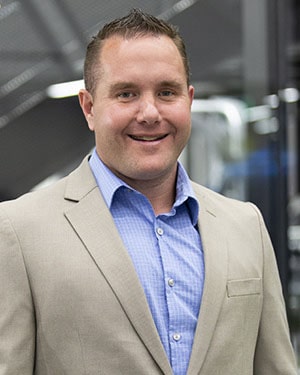
William E. Amonette, PhD, CSCS
Co-Director, SHOP-23
Executive director of the Health and Human Performance Institute (HHPI). In this role he serves as the chief science officer for HHPI, leading the vision and the strategic direction for research, programming, and educational outreach.

MAJ. Danielle Anderson, DPT, DSc
Physical Therapist currently assigned to Johnson Space Center, National Aeronautics and Space Administration.
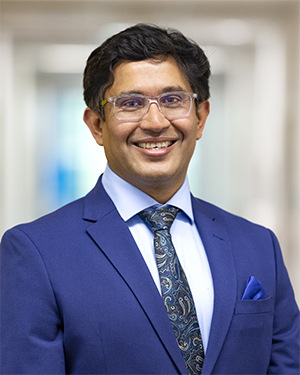
Ariful I. Bhuiyan, PhD
Assistant professor of Mechanical Engineering in the College of Science and Engineering and a senior scientist and engineer in the HHPI.
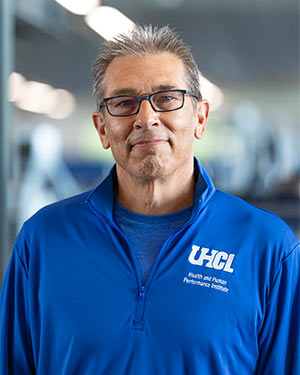
Joseph B. Hazzard, EdD, ATC
Clinical Director of the Health & Human Performance Institute.
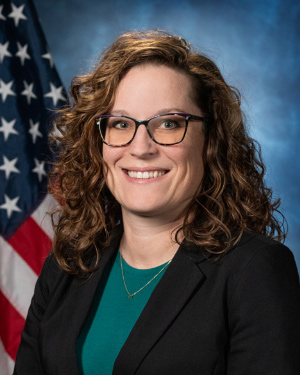
Christi Keeler, MS, LAT, ATC 
Astronaut Strength, Conditioning and Rehabilitation (ASCR) Specialist at NASA Johnson Space Center for KBR's Government Solutions U.S. Science and Space Business Unit.
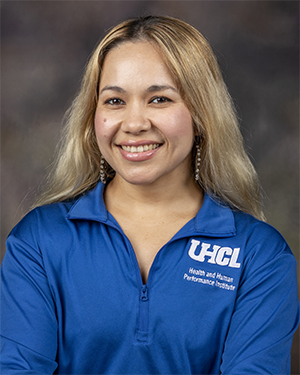
Olympia Watts, MS
Research coordinator in the HHPI.






